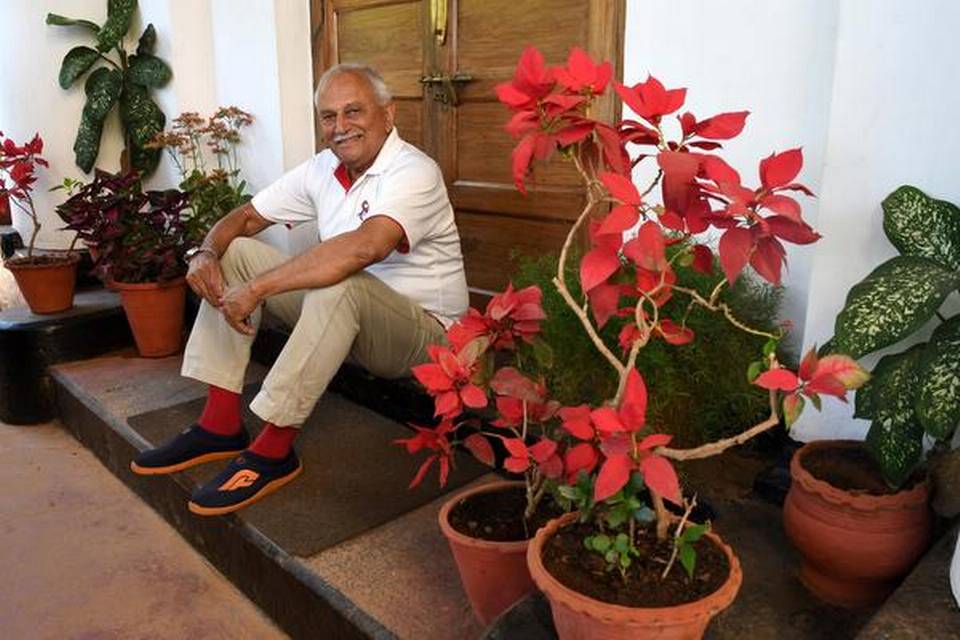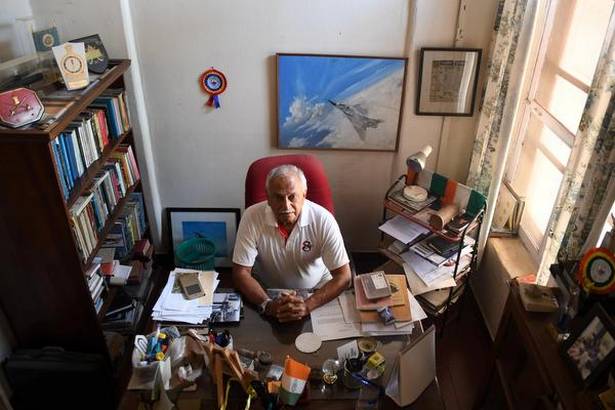
Much before Abhinandan, there was Cariappa, taken PoW by Pakistan.
The fighter aircraft blew up in a ball of flame and crashed. The pilot ejected safely, but when he landed with his parachute, he was immediately surrounded by Pakistani troops. It was September 22, 1965, and the officer was 27-year-old Flight Lieutenant K.C. Cariappa.
“I wasn’t sure whether I was in India or Pakistan. When our artillery opened up, one of the Pakistani soldiers said that your guns are firing at us. That’s when I realised that I had been taken as a prisoner of war (PoW),” recounts Air Marshal Cariappa (retd) in a telephonic interview from his home in Madikeri in Karnataka. He landed in Punjab’s Khem Karan sector, 5 km from the International Border, which had been occupied by the Pakistani Army.
The pilot spent the next few weeks being moved from one hospital to another because of a spinal injury and a damaged arm from shelling. As news of him being the son of then General K.M. Cariappa (who had retired as the Chief of the Army Staff and would be later conferred the rank of Field Marshal) spread, he was visited by Pakistan’s Army Chief General Muhammad Musa and one of Pakistan President General Ayub Khan’s son, who gave him a P.G. Wodehouse book and cigarettes.

Ayub Khan, who had served under Cariappa Senior in the North West Frontier Province, offered to return the young captive. But that offer was politely rejected by General Cariappa, who said that all Indian PoWs were his sons. The young officer was shifted to the main prison camp at Fort Dargai, where all the other Indian PoWs were detained. As a captive, life was far from comfortable.
“Food was terrible. We had pooris and a mug of tea for breakfast, and rice, two chapattis, lacey bhindi (lady’s finger) and a soupy preparation of turnip for lunch, which was repeated for dinner.”
The officers were given a pair of hawaai slippers, a dungaree and a blanket which were far from enough to keep warm. But, in the company of six other Indian Air Force officers at the prison camp life became somewhat cheerful.
“(Sqdn Ldr) Piloo Kakkar would read out chapters from Mahabharata and Ramayana and Sikky (Sqdn Ldr B P Sikand) had us in splits of laughter recalling his youth.”
A particularly memorable occasion was the New Year’s eve.
“We used to get a terrible fruit called mittha, which was a kind of a grapefruit but far from sweet. We asked for an earthen pot, put this fruit and our chapatis into the pot and added some methylated spirit stolen from the nursing orderly who would come to dress up our wounds. We then wrapped up the pot with a blanket and place it near a fire to prepare our brew, snake juice. For dessert, we had Marie biscuits and chocolates that we melted so we had almost the original Oreo sandwich!”
The 81-year-old says that while there was no ill-treatment or third-degree torture during his captivity, there was always “the fear of the unknown” haunting the prisoners.
Talking about Wg Cdr Abhinandan Varthaman’s capture by the Pakistani military, he says that “the rules of the game have changed due to social media”, but there is a need to adhere to a “code of conduct”. “While there were horrible videos of his bloodied face circulating, these were also an acknowledgment of the fact that he was in Pakistani custody.” His were “kinder and benign years”.
source: http://www.thehindu.com / The Hindu / Home> News> National / by Jagriti Chandra / New Delhi – March 11th, 2019

